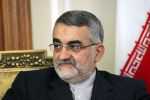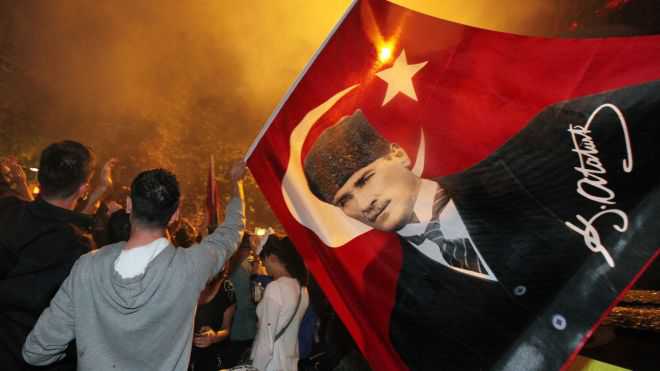By RICK GLADSTONE
Turkey announced Friday that it would install a radar system designed by the United States as part of a new NATO shield against a missile attack in Europe, a decision that pleased American military officials but was greeted with conspicuous silence by Iran, one of the perceived threats.
The decision by Turkey, a NATO member and an increasingly influential force in Middle Eastern politics, came against a backdrop of new Turkish frictions with Iran. The decision also suggested that Turkey may be shifting closer to the American view that Iran’s military assertiveness, most notably its frequent boasts about its growing missile abilities, is a cause for concern.
“Turkey’s hosting of this element will constitute our country’s contribution to the defense system being developed in the framework of NATO’s new strategic concept,” Turkey’s Foreign Ministry said in a statement carried by Turkish news agencies. “It will strengthen NATO’s defense capacity and our national defense system.”
Pentagon officials on Friday praised Turkey’s decision, saying it was part of the United States-backed missile defense plan that had been under discussion for months. “It was well received here,” said one senior American military officer in Washington.
Col. David Lapan, a Pentagon spokesman, told reporters that the installation in Turkey could happen before the end of this year, and would be linked to NATO warships in the Mediterranean equipped with interceptor missiles, which could destroy incoming missiles before they reach their intended targets.
At NATO headquarters in Brussels, Secretary General Anders Fogh Rasmussen said in a statement, “Turkey’s decision will significantly contribute to NATO’s capability to provide protection to its European territory, populations and forces against the growing threat posed by the proliferation of ballistic missiles.”
Even Russia, which has expressed concern about the missile shield despite American assurances that Russia is not the perceived threat, appeared to have no objections to Turkey’s participation. “The deployment of a radar in Turkey is not a direct threat to Russia’s strategic nuclear forces,” the Russian representative to NATO, Dmitri O. Rogozin, was quoted as saying by Russia’s Interfax news agency.
None of the official statements about Turkey’s announcement mentioned Iran, and there was no mention of the announcement in Iran’s state-run news media except a brief dispatch by Press TV, an Internet news site intended for foreign consumption.
But American and NATO military officials have in the past gone out of their way to make clear that the missile shield plan was designed to deter Iran. They are not only concerned about Iran’s claimed advances in its own missile technology, but say they suspect that Iran may be working on weaponizing its uranium supply, including the development of nuclear warheads for missiles.
Iran has repeatedly asserted that its nuclear program is peaceful. In recent months, however, it has bragged not only about an increased ability to produce enriched uranium, but it has publicly reported advances in its missile technology. In June, Iran unveiled underground silos that would make its missiles less vulnerable to attack.
Last year, the International Institute for Strategic Studies, an arms analysis group in London, reported what it called “emerging evidence” of Iranian silos that could fire missiles at Iraq, Israel, Turkey and countries throughout the Persian Gulf. The institute said the most logical reason for such silo construction was “to prepare to field larger missiles.”
Turkey’s decision to participate in the NATO missile shield plan was notable partly because Turkey, in a friendly gesture to Iran, had sought in the past year to help mediate the conflict between Iran and the West over Iran’s nuclear program. Turkey even hosted a diplomatic conference attended by them in January, which ended with no progress.
Since then, frictions between Iran and Turkey have increased, in particular over the Syrian government’s harsh crackdown on a pro-democracy uprising. Turkey has become a vocal critic of the Syrian government because of the crackdown, while Iran is one of Syria’s few remaining defenders.
The timing of Turkey’s announcement on Friday was also notable because it came the same day Turkey downgraded relations with Israel — a decision that distressed American officials. Turkey took the action after Israel refused to apologize for the deadly assault last year on a pro-Palestinian aid flotilla seeking to break the Israeli blockade of Gaza.
Turkey’s increasingly chilly relationship with Israel had also been an element in the prelude to Turkey’s participation in the NATO missile shield. Some officials in Turkey had feared that information collected by the radar site might be shared with Israel. It was unclear from the announcement on Friday whether those fears had been addressed.
Reporting was contributed by Eric Schmitt and David E. Sanger in Washington, and Sebnem Arsu in Ankara, Turkey.
A version of this article appeared in print on September 3, 2011, on page A11 of the New York edition with the headline: Turkey to Install U.S.-Designed Radar, in a Move Seen as Blunting Iran’s Missiles.
via Turkey to Install U.S. Radar, in Move Seen Aimed at Iran – NYTimes.com.
 Boroujerdi, who is the chairman of the Majlis National Security and Foreign Policy Committee, made the remarks in an interview with the Mehr News Agency published on Sunday in reference to the fact that Turkey has agreed to host an early warning radar as part of NATO’s missile defense system, which is ostensibly meant to counter an alleged ballistic missile threat from Iran.
Boroujerdi, who is the chairman of the Majlis National Security and Foreign Policy Committee, made the remarks in an interview with the Mehr News Agency published on Sunday in reference to the fact that Turkey has agreed to host an early warning radar as part of NATO’s missile defense system, which is ostensibly meant to counter an alleged ballistic missile threat from Iran.


